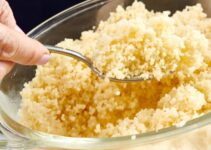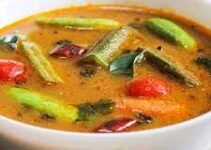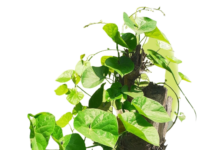What is Vacha?
Sages and rishis have used Vacha since ancient times due to its Ayurvedic medicinal benefits. As a medicine, it has been used since the time of Hippocrates. Vacha has many advantages, such as clearing nasal congestion, improving memory, asthma, voice clarity, soothing skin and hair care, etc. The Sanskrit meaning of Vacha is to make speech clear. It needs moist soil and grows by water margins. Vacha (Acorus Calamus) has been recognised in the Pharmacopoeia of Austria, Germany, Holland, Hungry, Italy, Norway, Russia, Sweden, and Switzerland. The medical recognition of this plant in these developed countries shows Vacha’s medicinal significance.
Different names of Vacha
- English: Sweet flag, Calamus root, Kalamus, Sweet sedge, Myrtle flag, Sweet-rush
- Hindi: Bacha, Ghorbach, Gorbach, Meethibach, Vekhanda, Safedbach
- Sanskrit: Bhadra, Bhutanashini, Bodhaniya, Galani, Golomi, Ikshuparni,
Jatila, Lomasha, Kanga, Mangalya, Kshudrapatri, Rakshoghni, Schleshmaghni, Shataparvika, Shadagrantha, Tikshna, Ugra, Ugragandha, Vacha, Vijaya - Punjabi: Bariboj, Wach
Nutritional facts of Vacha
Vacha contains essential oil such as asarone, calemen, calamenos, and calameon. On chemical analysis, it has been found that the herb contains a volatile oil from 1.5% to 3.5%. The oil contains asaryl, asarole, and aldehyde. It also contains sacorin – a bitter glycoside and an abandoned quantity of elements like Eugenol, Asarone, Pinene, Caffeine, Starch, and Tannin in small amounts. Leaves contain oxalic acid and calcium.
Medicinal benefit of Vacha
The rhizome of Vacha is very pungent and bitter. It helps to promote memory, longevity, and good voice. The medicinal properties of Vacha are thermogenic, aromatic, emetic, carminative, anthelmintic, laxative, stomachic, emmenagogue, expectorant, diuretic, anodyne, antispasmodic, aphrodisiac, anti-convulsant, anti-septic, anti-inflammatory, sudorific, antipyretic, insecticidal, tranquillising, nervine tonic, sedative, tonic and lekhanya.
10 best uses of Vacha
It has many pharmacology and therapeutic uses.
- Sinus congestion: To overcome sinus congestion, common cold, and sinus headache, it is suggested to use its powder in the nose, which causes sneezing and thus cleanses the respiratory tract.
- Best antidote: Its root is the best antidote for the ill effects of marijuana.
The side effects of all psychedelics can be neutralised by using calamus root. - Cough & Fever: Along with the decoction of liquorice root, it positively impacts cough, fever, and colic in children. For a dry cough, one should chew its meat. When a small piece of Vacha is chewed for a few minutes, it relieves the sore throat. In a nutshell, Vacha clears the respiratory channels and removes the obstructions whenever the respiratory process is normal.
- Improve memory: It is used to enhance memory. When taken both in the morning and evening for one month, the mix of a pinch of vacha powder, honey (1/2 tablespoon), and milk (1 cup) helps to improve memory, intelligence, and wisdom.
- Asthma: It is effective against asthma and chronic bronchitis. It is suggested to take two glasses of calamus tea, which leads to vomiting. The herb is a broncho-dilator and acts as a chest decongestant. This formulation clears the passage by expelling out impurities from the stomach and lungs, making the patients feel comfortable and easy.
- Voice clarity: When the churn of Vacha is used with water or honey, it helps to remove sluggishness in the tongue during speech. Since it enhances vocabulary, it is helpful for salespeople, executives, teachers, researchers, intellectuals, and other professionals. It is also suitable for those who appear for interviews, examinations, and lectures.
- Sedative: Neuropharmacological actions of asarone oil revealed its sedative
and tranquillising action. Asarone also reduces spontaneous activity, causes anxiety reduction, and causes a prolonged calming effect. - Dilates blood vessels: It dilates the blood vessels in the brain, increases blood circulation, and is thus used in a coma, cerebral vascular diseases, cerebrovascular accidents, transient ischaemic attacks, etc.
- Skincare: For skin care, the extract of Vacha lactose is used in bath preparation. This preparation gives a moisturising effect on the skin.
- Hair care: The extract of a calamus root is one of the major constituents in formulating general tonics concerning hair care. Mix one teaspoon of powdered root in 2 teaspoons of cold coconut milk and make a paste to prevent hair loss. Then, apply on the affected area and allow it to remain for half an hour before rinsing it off.
10 top benefits of Vacha
- Skincare: Take an equal amount of powder of Acorus calamus, symplocos racemosa, and rice powder. Now, pound it with cow’s milk and apply it on the pimples and acne. The regular application helps disappear in three days if appropriately used and religiously.
- Impotence: To enhance your sex life, take equal proportions of Vacha, Withania somnifera, Piper longum, Saussurea Lappa, and Datura Seeds. Make a fine powder and sieve it. Now take 1 gm of it and mix it with 10 gm of cow’s ghee and rub gently on the male genital organ daily. Continue for 21 to 41 days.
- Strengthens male organ: Take the equal portion of Acorus calamus, Sida cordifolia, Sida spinosa, Saussurea Auriculata, Scindapsus Officinalis, Physalis Flexuosa and Neriumodorum. Make a fine powder of all these herbs and mix it with butter. A skinny one will attain the standard size if a male organ is besmeared with this daily.
- Improve mental performance: Take the 10-gram powder each of Vacha, Brahmi, and Shankhapushpi. Mix and take one teaspoonful twice a day with water or honey. This is a very effective formulation used in the management of mental disorders.
- Memory tonic: Take Vacha powder (1/2 teaspoon) and Brahmi powder (1/4 teaspoon). Mix and take it with butter and mishri and take it early in the morning. It sharpens memory and intellect and refreshes the mind.
- Piles: Take 10 grams of Vacha root, Indian Hemp, and ajwain. Make a fine powder of these and use them as fumigation in the painful condition of Piles.
- Loss of appetite: Take 10 grams each of Calamus root, Asafoetida, Aconitum heterophyllum, Long pepper, Black pepper, Ginger, TerminaliaChebula, and Saunchal Salt. Make a fine powder and mix it well all together. It can be used in case of loss of appetite, indigestion, etc.
- Urinary Stones: Take Calamus rhizome (two-ounce), Coriander(one ounce), Piper nigrum (1 piece), and Water (1 pint). Boil it and reduce it to 12 ounces of water. This is a decoction used for the ailments of urinary stones. One ounce of this decoction is given to adults thrice a day, and one teaspoon full of sugar, in the case of children, twice or thrice a day. It should be continued till the symptoms subsidies.
- Calamus tea: Calamus rhizome (Small piece) and Water (2 cups). Cut calamus rhizome into small pieces and allow to boil on mild heat
till the water is reduced to half. Now, add milk and sugar. Now, the calamus tea is prepared. - For abscess: To cure abscess, one should take the mustard seed, terminaliachebula, asafetida, Vacha, moringaoleifera, and calotropisprocera. After pounded with amla juice, besmear the affected part and bandage with the silky cloth for some time. It will subside the swelling.





very good information. Thanks. How about growing vacha plant at home gardens or in a container. Where I could get the plants in Kerala. If you could please E-mail me at marybabu@gmail.com
Calamus was also used by shamen. A shaman would eat a six inch piece of root and use it to get out of his body. It is a powerful hallucinogen in high doses when fresh. It may counteract the side effects of hallucinogenic drugs but it is one of them too.
Where did u see that ? Thank You.
supreme natural products U will shown in internet “THANK Q” awesomely try to improve your herbal treatment how we treat Which method we can use better to save the money OUR health.